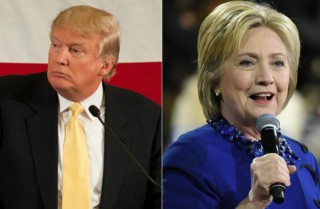
The two founders of the political action group Republicans for Clinton have launched an online source where voters can go to trade votes. Their website is called Trump Traders and their motto is that “friends don’t let friends protest vote in swing states.” Yes, they are literally advocating that people trade votes. The purpose? They are focused on swinging the election in favor of Hillary Clinton in the five key states including Florida, North Carlina, Ohio, Pennsylvania, and Texas.
John Stubbs and Ricardo Reyes penned an NYTimes Op-Ed urging anti-Trumpers to trade their vote:
The system is simple. If you are thinking about voting for Mr. Johnson and live in a swing state, contact a friend who is voting for Mrs. Clinton in a safe state, and trade. Or, since it’s 2016 and not 2000, we recommend the new #NeverTrump app, which will organize your contacts into safe states and swing states, enabling an easy trade. The safe-state friend will vote for Mr. Johnson, and the swing-state voter picks Mrs. Clinton. Mr. Johnson still gets a vote, but not at the expense of a major Electoral College haul for Mr. Trump.
So how will you know if your friend will vote for Clinton? It’s apparently all based on the honor system. No written contracts involved. And guess what, shockingly this seems to be perfectly legal. But, we’ll be clear, that’s not guaranteed. A similar thing was tried in 2000 after voting exchanges were set up to change votes between Ralph Nader and Al Gore.
“California made that claim after 2000, and the 9th Circuit held that these were not binding promises, and they were a form of First Amendment protected speech. Not clear if other courts would agree should this arise again,” election law Professor Rick Hasen said in his blog.
In that decision, the United States Court of Appeals for the Ninth Circuit ruled:
The websites’ vote-swapping mechanisms as well as the communication and vote swaps they enabled were constitutionally protected. Although California certainly has valid interests in preventing election fraud and corruption, and perhaps in avoiding the subversion of the Electoral College, these interests did not justify the complete disabling of the vote-swapping mechanisms.
There is no doubt if this turns out to be a close election, Trump could target the vote trading websites for potential litigation. Vote trading was deemed legal by the Ninth Circuit, but there is no telling what might happen in other Federal Circuit Courts if this practice is challenged. We’ll keep an eye.
Correction: This article originally said the ACLU sued the vote trading websites. That was incorrect, they supported the effort.
[image via shutterstock]